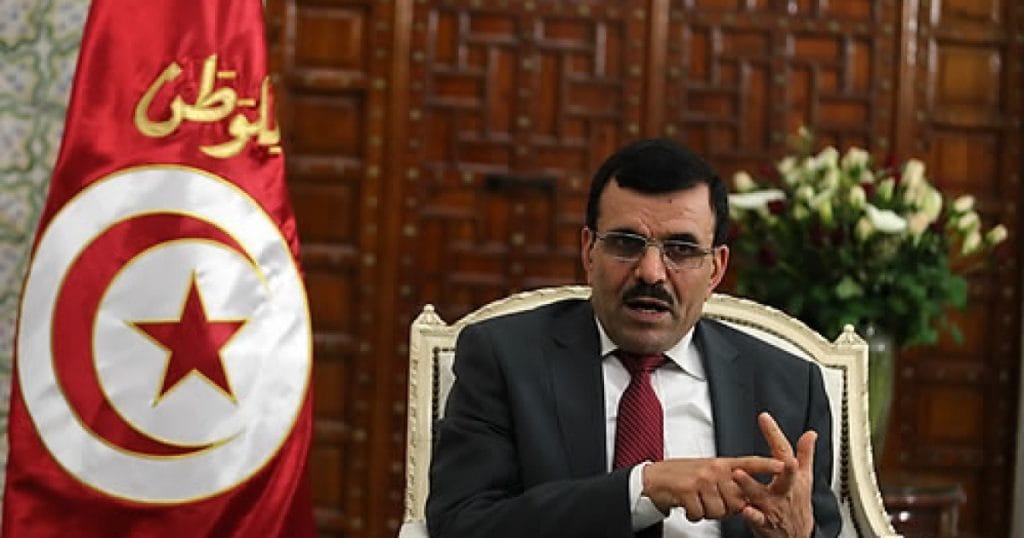A Tunisian court has sentenced former Prime Minister Ali Larayedh to 34 years behind bars over accusations that he enabled the departure of individuals from Tunisia to Syria during that country’s civil war. Larayedh, a senior figure in the Ennahdha party, has rejected the ruling and denied any involvement in facilitating such movements.
During his court appearance on Friday, Larayedh stated, “I was neither supportive, nor complicit, nor indifferent to acts of violence,” emphasizing that he had always opposed such conduct. He and members of his political party have condemned the charges as part of a broader effort to sideline the opposition and discredit political rivals under President Kais Saied’s rule.
Larayedh led the Tunisian government from 2013 to 2014 and has been in pre-trial detention since 2022. His conviction comes amid an escalating campaign of arrests and prosecutions targeting critics of the president, reinforcing fears of an increasing clampdown on political freedoms in Tunisia.
The sentencing, confirmed by Tunisia’s state-run news agency TAP, was part of a larger case involving eight individuals. Sentences handed down ranged from 18 to 36 years, though the identities of Larayedh’s co-defendants were not publicly disclosed.
Broader Political Crackdown
Larayedh’s conviction is one of several high-profile cases launched under Saied’s administration, which has been accused of using the judiciary to suppress dissent. Just days before the court’s decision, outspoken government critic and former magistrate Ahmed Souab was detained, adding to a growing list of politicians, journalists, and business figures who have been prosecuted on charges described by critics as vague or politically motivated.
Ennahdha, a once-dominant political force in Tunisia’s post-2011 democratic transition, maintains that the charges brought against its members are unsubstantiated and form part of a calculated campaign to weaken organized opposition. The party has consistently denied any links to violent acts or efforts to recruit fighters for foreign conflicts.
Since July 2021, when President Saied suspended parliament and granted himself sweeping powers, Tunisia has witnessed a marked shift in its political climate. Saied’s critics argue that he has systematically dismantled the democratic institutions built following the 2011 uprising that ousted long-time ruler Zine El Abidine Ben Ali.
The Tunisian government, however, insists that the judiciary remains impartial and independent. Officials have rejected claims of political interference in legal matters, asserting that all proceedings are carried out according to the law.
Public Outcry and Street Demonstrations
Anger over the government’s tightening grip on power has spilled into the streets. On Thursday, large crowds gathered in downtown Tunis to denounce what they described as authoritarianism under Saied’s leadership. The protest, held along Habib Bourguiba Avenue — the symbolic heart of the 2011 revolution — featured chants calling for the president’s resignation and the restoration of democratic governance.
“Saied go away, you are a dictator,” protesters shouted, alongside calls for regime change that echoed slogans from the early days of Tunisia’s revolution.
It was the second major demonstration in a week, highlighting the growing frustration among citizens and opposition groups. While many came to criticize Saied’s consolidation of power, others raised concerns over the erosion of freedoms and increasing use of the judiciary to target dissent.
Simultaneously, pro-Saied demonstrators staged a counter-rally on the same avenue, voicing their support for the president and rejecting what they perceive as foreign interference in Tunisia’s internal affairs. Banners and chants at the pro-government rally included slogans such as “No to foreign interference” and “The people want Saied again.”
The country remains deeply divided. While Saied’s supporters argue that his actions are necessary to restore stability and end corruption, his critics warn that Tunisia is drifting away from the democratic principles that defined its post-revolution era.
As legal proceedings continue and political tensions rise, Tunisia’s future remains uncertain, with the fate of its democratic transition hanging in the balance.



